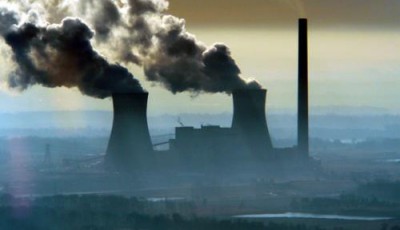BC Introduces New legislation to enable world-leading provincial spills regime
 GLOBE-Net, February 28, 2016 – Amendments to the Environmental Management Act (EMA), introduced today will, if passed, provide the legal foundation to establish a new, world-leading spill preparedness and response regime to address environmental emergencies in B.C.
GLOBE-Net, February 28, 2016 – Amendments to the Environmental Management Act (EMA), introduced today will, if passed, provide the legal foundation to establish a new, world-leading spill preparedness and response regime to address environmental emergencies in B.C.
The proposed spills regime will ensure effective preparedness, response and recovery measures are in place for hazardous substance spills, from any source, and reflect over three years of engagement with industry, First Nations and local government. This legislation will:
- Establish new requirements for spill preparedness, response and recovery
- Create new offences and penalties
- Enable the certification of a Preparedness and Response Organization
- Increase transparency, participation and accountability
These proposed requirements were first announced in June 2015 and build on the proposed policies outlined in the ministry’s two intentions papers on land-based spills.
“ Through this legislation, and the detailed regulations to come, we are working hard to ensure B.C. sets the bar in protecting human health and the environment.” said Mary Polak, Minister of Environment
If legislation is passed, key elements of the new spill regime, including an initial set of detailed regulations, will come into effect in 2017. Engagement will continue with all stakeholders during the coming months as regulations are designed.
Once fully implemented, these proposed amendments will ensure a world-leading spill preparedness and response regime, satisfying one of the Province’s five conditions for moving heavy oil (condition three).
While it is still the primary responsibility of the federal government to ensure a world-leading marine spills regime is in place (condition two of B.C.’s five conditions), some elements of the new provincial legislation will also apply to spills into or affecting the marine environment.
B.C. continues to proactively support the federal government in establishing world-leading marine response capabilities, and recently commissioned Nuka Research to do a follow-up to their 2013 report which assessed current marine spill preparedness and response capabilities for B.C.’s coast. The latest report on world-leading practices in marine spill preparedness and response is available here:
Five Conditions
Premier Christy Clark set out five conditions in 2012 that must be met for the Province to support the construction and operation of heavy-oil pipelines in B.C. The Province’s position has not wavered since then. The 5 conditions are:
- Successful completion of the environmental review process.
- World-leading marine oil spill response, prevention and recovery systems for B.C.’s coastline and ocean to manage and mitigate the risks and costs of heavy-oil pipelines and shipments.
- World-leading practices for land oil spill prevention, response and recovery systems to manage and mitigate the risks and costs of heavy-oil pipelines.
- Legal requirements regarding Aboriginal and treaty rights are addressed, and First Nations are provided with the opportunities, information and resources necessary to participate in and benefit from a heavy-oil project.
British Columbia receives a fair share of the fiscal and economic benefits of a proposed heavy-oil project that reflect the level, degree and nature of the risk borne by the province, the environment and taxpayers.
The new and enhanced amendments will:
Create a new category of Regulated Persons – enshrining in legislation what is already required today by the polluter pay principle. Individuals or corporations responsible for a spill are required to clean it up. To be clear, a parent company will be deemed responsible if one of their drivers is involved in a spill. Regulated persons (parties who present a spill risk above a certain threshold to be defined in regulations) will be required to meet new spill preparedness requirements, including contingency planning requirements which will demonstrate whether they are prepared to effectively respond to a spill.
Create new spill response and restoration requirements – clearer requirements for the responsible person (spiller) in terms of spill response, and new requirements for a responsible person to prepare and carry out a recovery plan to resolve or mitigate the impacts of a spill – including environmental restoration. In the event government must provide this work, the Province will be able to pursue costs against the responsible person and the owner of the substance spilled.
Enable the certification of a preparedness and response organization (PRO) – a PRO can maintain spill response capability throughout B.C. and lead communication, co-ordination and collaboration between industry sectors for planning and continuous improvement. Regulations may require regulated persons work together with a certified PRO. During government-led spill response actions, government may rely upon the PRO to provide spill response capability – for example, equipment and technical expertise.
Ensure development of area response plans and geographic response plans – these are two key preparedness planning tools used to ensure the right resources are available in the event of a spill in B.C., regardless of what is identified in a company’s spill contingency plan.
Increase transparency, participation and accountability – ministerial authority will be given to create advisory committees to help the minister obtain advice from experts and representatives from local governments and First Nations. The minister will also be required to submit reports on the effectiveness of the spill response regime to the legislature (more details, including frequency, will be outlined in regulations).
Enable oversight to ensure fairness – proposed legislation will enable a complaint mechanism for regulated persons to raise concerns about fees charged by the PRO to the minister and will allow for the minister to adjust the fees of the PRO.
Authorize the collection of information – government can request information about hazardous substances when it is related to the risk of a spill or after a spill to identify all necessary actions needed to protect the environment.
Provide statutory immunity for the government – this provision will clarify that no legal action can be taken against government, its employees or contractors for any decisions in relation to any government spill response work.
Create new offences and penalties – new penalties ranging from $300,000 to $400,000 in fines depending on the offence AND can include a jail term of up to six months. These penalties are in line with existing penalties for similar offences under EMA or other statutes. However, it is expected the majority of penalties administered under the regime will be administrative penalties.







